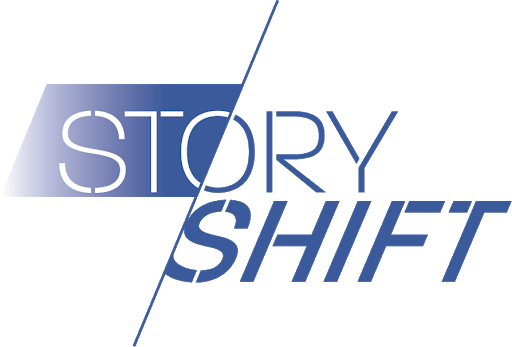
StoryShift: Exploring Accountable Storytelling
“You have to be a human before you’re a photographer or documentarian,” filmmaker Alexander Glustrom says in an interview with Working Films.

In September, Working Films debuted StoryShift, a program aimed at sharing the approaches of filmmakers who use co-creative practices in their work. Through interviews and resource sharing, StoryShift is opening up a conversation around authentic representation of people in documentary films. Hannah Hearn, the impact coordinator at Working Films, explains, “We were really trying to lift up lessons learned and advice from those filmmakers.”
These aims resonate with themes raised in the field study Collective Wisdom, in which similar questions of justice framed the conversations with documentarians: For what purpose are you capturing a story? For whose benefit? What are your responsibilities as an “outside” observer?
StoryShift showcases the documentary Always in Season, in which filmmaker Jacqueline Olive uses a genuinely collaborative approach to represent the history of African-American lynchings and the present-day story of Lennon Lacy, a 17-year-old found hanging from a swing set in 2014 in Bladenboro, North Carolina. Olive notes, “I don’t ever use the term ‘subject.’ It reflects the power dynamics of colonialism. You have this gaze when you talk about subjects, and too often, it’s done with people of color.”
In her StoryShift interview, Olive describes her drive to get to know the people she films, contrasting her approach with that of the “media dropping in and dropping out of Bladenboro.”
Claudia Lacy, featured in Always in Season, discusses her experience of this process in a StoryShift interview. She explains, “When [Olive] allowed to let me know that she had a 17-year-old and was a single mother, she could relate because there is something there, that bond between a mother and a child, that you never leave… She didn’t really have to tell me. ” In her StoryShift interview, Lacy also notes that Olive was able to use her compassion and position as a filmmaker to help her learn more information about her son’s investigation than she was able to obtain on her own.
Community members and filmmakers are demanding that more questions about ethics surface in documentary filmmaking. What responsibilities do filmmakers have to the people whose stories they are representing? How should a filmmaker protect the privacy and integrity of the people they’re representing on screen? What kinds of benefits should the filmmaking process offer its participants? These are complex questions with answers that might differ from one film to the next. Importantly, these are also questions that cannot be addressed by filmmakers alone.
Natalie Bullock Brown, lead strategist of StoryShift, explained, “We hope that this work will not only impact filmmakers but also expand to funders, juries… and every axis of this industry, that this issue of accountability will resonate in ways that it currently doesn’t.”
Brown further highlighted that she is passionate about funding as an access point. For the Working Films funding process, filmmakers have to answer questions about their accountability practices. During this process, Working Films may also bring in outside panelists who have experience with a particular story they’re considering. She pointed this out as a counterexample to funding situations in which, “white filmmakers can get a full budget to tell the story of a community of color, in particular, a black community, and not have crew members or advisors or anyone that looks like the community.”
When it comes to influencing popular narratives and shifting audience expectations, however, it’s clear that even ethical filmmaking and funding are not sufficient. While discussing the role of the broader ecosystem around documentary films, Brown cited “The Dominance of the White Male Critic,” a New York Times op-ed in which Elizabeth Méndez and Chi-hui Yang highlight the impact of racial inequities in representation among film critics. Brown emphasized how important it is for people of diverse backgrounds, experiences, and voices to have spots on film festival selection panels. She explains, “Different people are going to have different lenses [to] see the importance of a variety of stories.” Films responsibly, authentically depicting real-world stories may face hurdles to exposure if critics and film festival panelists are not equipped with a diversity of viewpoints to receive them.
To address these concerns, StoryShift is expanding beyond online videos, including interactive panels at film festivals and sharing online resources. By sharing filmmaking insights, compiling resources, and bringing the discussion to film festivals, StoryShift aims to make space for co-creation across the entire lifetime of a film.
This article is part of Collective Wisdom, an Immerse series created in collaboration with Co-Creation Studio at MIT Open Documentary Lab. Immerse’s series features excerpts from MIT Open Documentary Lab’s larger field study — Collective Wisdom: Co-Creating Media within Communities, across Disciplines and with Algorithms — as well as bonus interviews and exclusive content.
Immerse is an initiative of the MIT Open DocLab and The Fledgling Fund, and it receives funding from Just Films | Ford Foundation and the MacArthur Foundation. IFP is our fiscal sponsor. Learn more here. We are committed to exploring and showcasing media projects that push the boundaries of media and tackle issues of social justice — and rely on friends like you to sustain ourselves and grow. Join us by making a gift today.